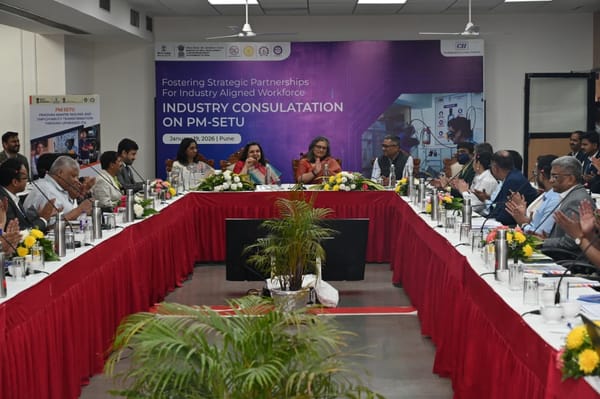Rising heart disease in India

“Mental well-being is central to preventing chronic and non-communicable diseases, especially heart disease.
Alongside regular exercise and stress management, nurturing mental health early in families and reinforcing it in schools is critical. Life is not a sprint but a marathon, and young people need guidance to build patience, resilience, and balance rather than be pushed into early burnout. Schools can play a transformative role by replacing unhealthy practices with healthier alternatives, fostering mental wellness, and encouraging physical activity. If we want to address India’s heart health crisis, we need to shift from a curative mindset to cultivating genuine health-seeking behavior across our families, schools, and communities,” said Mr. Rajesh Bhushan, Former Secretary, Ministry of Health & Family Welfare, Government of India, and Chairperson, Governing Council, Illness to Wellness Foundation, during his keynote address at the ‘Illness to Wellness’ Awareness Conference held in New Delhi on the occasion of World Heart Day 2025.
The Illness to Wellness Foundation organised the conference under the theme 'Heart Care – Don’t Miss a Beat', bringing together leading cardiologists, policymakers, and public health advocates to address India’s growing heart health crisis and the urgent need for preventive care, lifestyle interventions, mental health integration, digital health solutions, and community awareness.
In his welcome address, Mr. Anil Rajput, Chairperson, Advisory Council, Illness to Wellness Foundation, said, “World Heart Day reminds us that the heart is truly the seat of life. We are fortunate that the Government of India has implemented a range of initiatives addressing heart health—from the National Programme for Prevention and Control of Cancer, Diabetes, Cardiovascular Diseases and Stroke (NPCDCS) to Ayushman Arogya Mandirs and PM-JAY, providing preventive care, early detection, and financial protection for treatment. Coupled with wellness movements like Fit India, Khelo India, and Har Ghar Yoga, these programs are promoting physical activity, mental well-being, and healthy lifestyles. Technology, including telemedicine and AI-driven diagnostics, is further bridging the gap between urban and rural healthcare, ensuring timely and efficient heart care for all citizens. Supporting these efforts collectively can make a meaningful difference in safeguarding India’s heart health.”
Experts emphasised the rising incidence of sudden cardiac arrests in young adults, the impact of mental stress, pollution, and poor lifestyle choices, and the critical importance of timely preventive screenings. They also highlighted how digital health, wearable technology, and artificial intelligence are transforming cardiac care delivery across India, bridging the urban-rural divide.
Concluding the session, experts called for a national movement on heart health—rooted in awareness, preventive screening, mental well-being, emergency preparedness (including CPR education), and community participation. The conference closed with a collective appeal to take every heartbeat seriously and ensure a healthier, heart-strong and mentally resilient Bharat.




